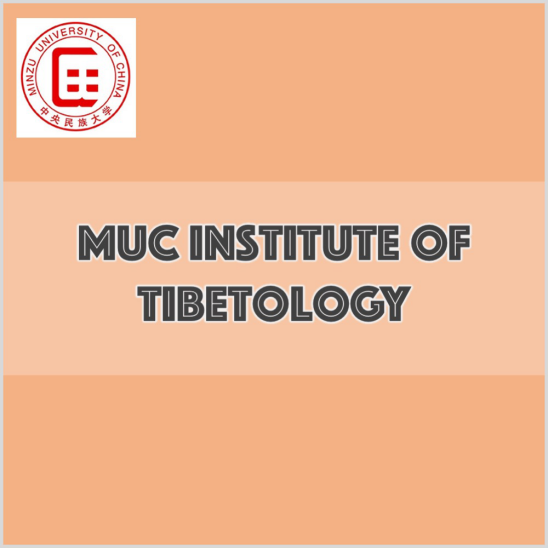School Overview & Development History
The predecessor of the MUC Institute of Tibetan Studies was the MUC Tibetan Language Teaching and Research Section, founded in 1951, and was born alongside the Minzu Institute of China, which was under construction at that time. The Department of Tibetology was established in 1993. In 2000, the MUC Department of Tibetology and the MUC Institute of Tibetology merged to form the MUC Institute of Tibetology. In 2019, it was reconfigured into a division-level independent scientific research platform. The institute is engaged in professional research encompassing Tibetan culture, history, and religion.
Majors & Programs
More information will be available soon.
Undergraduate Programs (4-Year Programs)
More information will be available soon.
Professional Master's Programs (2-Year Programs)
More information will be available soon.
Academic Master's Programs (3-Year Programs)
More information will be available soon.
Doctoral Programs (4-6 Year Programs)
• Tibetan Religious History
• Tibetan Cultural History
• Ancient Tibetan History
• Tibet Related Document Research
• Modern Tibetan History
• Tibetan Religious Culture
Post-Doctoral Programs:
More information will be available soon.
Other Specialized Coursework (Program Durations Vary)
More information will be available soon.
School Focus, Beliefs & Development Objectives
Over the past 60 years, with the strong support of the State Ethnic Affairs Commission and MUC, the MUC Institute of Tibetan Studies has conducted surveys on minority nationality languages as well as social history in various minority nationality regions of China, major ethnic policies, ethnic theoretical issues, social and economic development in Tibetan areas as well as relevant work in many different kinds of scientific and cultural work. The MUC institute of Tibetan Studies has played an important national-level role in all of this. The institute currently has a master's degree in Tibetan studies covering two directions: Tibetan History and Tibetan Religious Culture. There are doctoral programs in Tibetan Religious History, Tibetan Cultural History, Ancient Tibetan History, Document Research, Modern Tibetan History, and Tibetan Religious Culture.
Our Talent
Since its establishment, the institute has brought together a group of well-known experts and scholars engaged in Tibetan Studies, such as Yu Daoquan, Dongga Lobsang Chilie, Wang Yao, Hu Tan, Chen Qingying, Duan Zhijia, and other academic experts as well as some representatives of young and middle-aged academic circles including Danzhu Aung Ben, Xi Rao Nima, Cai Rangtai, Zhou Runnian, Luo Sang Kaizhu, Zha Ba Junnai, Zeng Guoqing, Cai Wang Lamu amongst others. The institute currently has 21 full-time teachers, including 6 professors, 6 associate professors, 9 lecturers, 8 doctoral supervisors, and 12 master supervisors. Over the past 60 years, the Institute of Tibetology has trained a large number of outstanding talents to engage in work projects in Tibetan areas and national-level departments. Moreover, they are active in their respective positions.
Full-Time Staff: 21
Professors: 6
Associate Professors: 6
Lecturers: 9
Doctoral Supervisors: 8
Masters Supervisors: 12
Academic Exchanges and Cooperation at Home and Abroad
More information will be available soon.
Examples of Internationally Active Scholars
More information will be available soon.
School Slogan
More information will be available soon.

Official Website: https://www.muc.edu.cn/info/1194/1397.htm